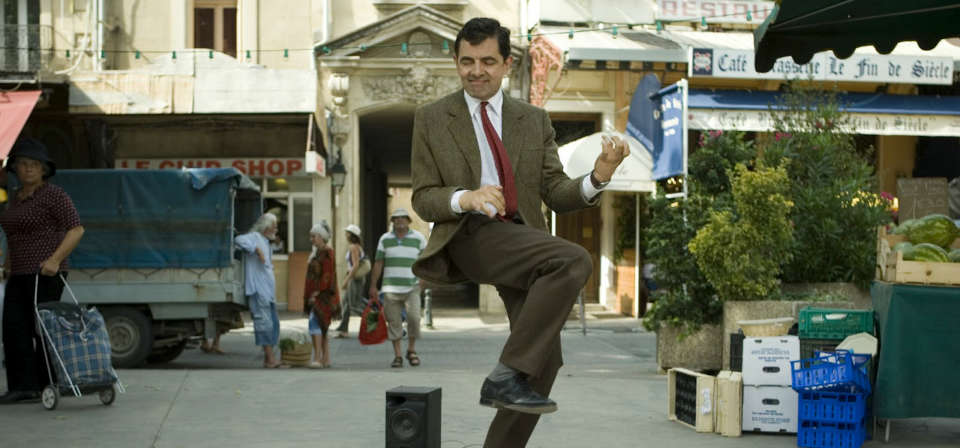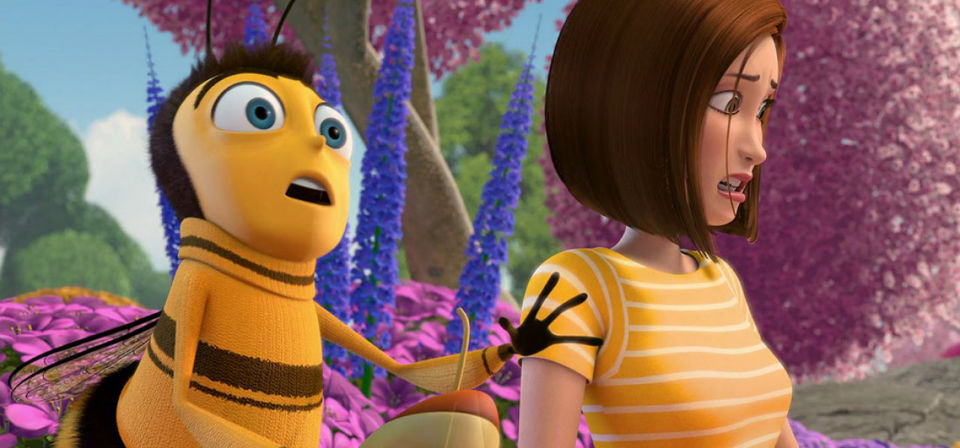Reviews

The Spirit (2008)
The movie version of The Spirit is a straightforward excursion into the Frank Miller Universe at its most reductionist, self-parodying and content-free. There are no characters or relationships, only placeholders where characters ought to be. There is no drama or conflict, only dueling line readings and cartoony brutality. There is nothing at stake and nothing and no one to care about, only a pointless, shapeless exercise in wildly veering moods and styles.
The Tale of Despereaux (2008)
Here is a mouse-hero who is truly serious about honor, devotion and courage, in a movie that feels like a storybook rather than an action movie — a movie that, in addition to honor and devotion and courage, is also about longing, imagination, resentment, contrition, forgiveness and redemption. It’s also a trippy movie in which the kingdom of Dor celebrates the annual Soup Day festival like Mardi Gras in New Orleans, rain magically stops falling when the queen dies and a sort of magical food golem helps the royal chef create new soups.
The Day the Earth Stood Still (2008)
I don’t object in principle to Keanu–Klaatu’s message. It’s just not a very interesting or enlightening thing for an ambassador from the universe to say. It’s sort of a letdown, not unlike like having the pope show up at your house only to check the batteries in your smoke detectors. There’s nothing wrong with that. You just hope he has more on his mind.
The Day the Earth Stood Still (1951)
More thoughtful and restrained than most sci-fi of the period, The Day the Earth Stood Still has aged better than almost all of its peers. … Decades later, it remains a thought-provoking, worthwhile parable.
Quantum of Solace (2008)
Ferocious car chases, rooftop pursuits, brutal combat sequences, elegantly choreographed stunts, a parade of exotic locations… Quantum does all this, with credible panache. Just don’t expect to care like you did in Casino.
Madagascar 2: Escape 2 Africa (2008)
Madagascar 2 not only recalls Happy Feet’s satire of religion, it also makes the latter’s coy coming-out subtext look tame compared to its own overt running theme of sexual diversity.
The Express (2008)
The Express is a rare inspirational sports film that remembers who sports are supposed to inspire: other people.
The Lucky Ones (2008)
After running through some pretty contrived paces for much of its running time, The Lucky Ones has some surprises in the last act that ultimately make it more satisfying than it might have been. Honor, sacrifice, and loyalty do count for something, and tough decisions characters thought they would never make turn out to be thinkable after all.
Miracle at St. Anna (2008)
It’s a slightly heavy-handed misstep in a film that runs confidently though unevenly over a mountain of material, stepping right more often than it steps wrong over its 160 minutes. As a contribution and challenge to the World War II genre, Miracle at St. Anna compares reasonably well to most Hollywood efforts. As is often the case, Lee seems to relish biting off more than he can chew, and the ambition and scope of this effort is worth the bits that don’t quite fit.
Burn After Reading (2008)
Burn After Reading reminds me a little of the Darwin Awards. It’s morbidly absurdist, thoroughly pointless, and can certainly be funny at times, even acutely so, with a freakish bathos that can be hard to look away from. But if you don’t feel a little queasy for laughing, and perhaps you should, you might at least feel bothered that someone wanted to put the whole thing together for your amusement.

Mr. Bean’s Holiday (2007)
Longtime Bean aficionados may find some of the gags familiar from the TV show and the earlier film. Others may feel (what seems plausible to me) that Atkinson has refined his act and given us “Bean’s Greatest Hits” in their ideal form, culminating in a delightful climax approaching feckless transcendence.

Bee Movie (2008)
As bright-hued as it is dim-witted, Bee Movie is a scattered oddity of a film, combining warm, candy-colored computer-animated visuals, occasionally laugh-out-loud absurdist humor and such profound stupidity about birds and bees — and flowers and trees — that kids watching it will actually lose “facts-of-life” IQ points. Which, for the record, is not a good thing.
Henry Poole is Here (2008)
Like M. Night Shyamalan’s Signs, Henry Poole simply divides the world into two groups of people: those who see signs and miracles, and those who see only coincidence. How either group arrives at or explains particular conclusions, not to mention how people decide which group they belong to in the first place, isn’t explored. We just get Henry with his arms folded defiantly across he chest intoning “Coincidence,” and everyone else serenely shrugging their shoulders saying “Faith.”
The Terminal (2004)
The story wobbles between plotlines and characters that make emotional sense and ones that don’t. And the climax (hastily rewritten and reshot mere weeks before opening day) is pretty much unsalvageable. In Spielberg and Hanks’s professional hands the whole package remains passably entertaining, but much of it doesn’t bear thinking about afterwards — not because the premise is implausible, but because, granted the premise, characters do things that no one would, or should, do under those circumstances.
Brideshead Revisited (2008)
Yet this Brideshead Revisited ultimately subverts Waugh’s subtlest and most subversive achievement: It offers all the foibles and puzzlement of the Flytes’ religious world, while all but obliterating the threads of grace running through their lives.
The Train (1964)
How do you weigh the cultural heritage of a nation against the value of human life? That’s the subtext of The Train, a wholly persuasive, intelligent thriller crisply directed by John Frankenheimer (The Manchurian Candidate) with documentary-like realism and emphasis on action and problem-solving.
The Wicker Man (2006)
What do you get if you take Robin Hardy’s cult classic The Wicker Man, and then take out religion and sex? And folk music? That’s the question writer-director Neil LaBute (Nurse Betty) sets out to answer in his 2006 remake of The Wicker Man. After watching the film, I’m still unsure of the answer.
The Wicker Man (1973)
Is The Wicker Man anti-Christian? Anti-pagan? Anti-religion? Where are its sympathies? Does it have any? Like baffled, blustering Sergeant Howie, blundering about the clannish Summerisle community trying to investigate a missing child, we are asking the wrong questions, assuming the wrong rules, wandering ever further off course, walking into a trap.
The Dark Knight (2008)
So deeply does The Dark Knight delve into the darkness that lurks in the hearts of men that it comes almost as a shock, bordering on euphoria, to find that it maintains a tenacious grip onto hope in the human potential for good.
Hellboy II: The Golden Army (2008)
Bigger effects and badder creatures make Del Toro’s second take on Hellboy more entertaining than the original, but something’s still missing in the story of the super hero from hell.
Recent
- Benoit Blanc goes to church: Mysteries and faith in Wake Up Dead Man
- Are there too many Jesus movies?
- Antidote to the digital revolution: Carlo Acutis: Roadmap to Reality
- “Not I, But God”: Interview with Carlo Acutis: Roadmap to Reality director Tim Moriarty
- Gunn’s Superman is silly and sincere, and that’s good. It could be smarter.
Home Video
Copyright © 2000– Steven D. Greydanus. All rights reserved.